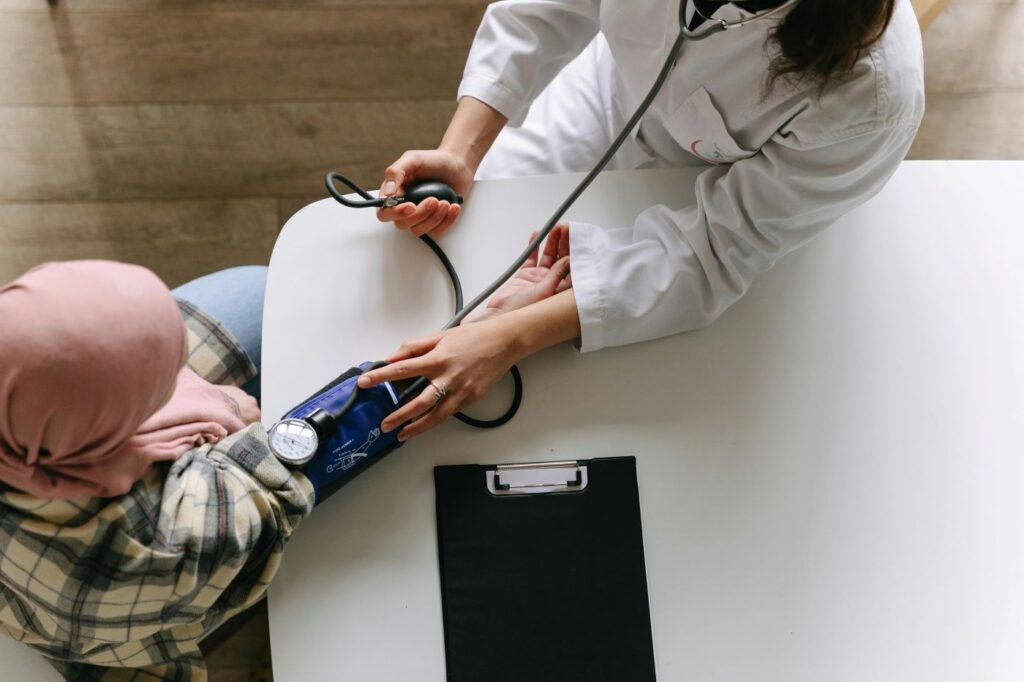Drugs and Medications
Discover the Perfect Time to Take Your Blood Pressure Medication
Whether you’re a morning person or a night owl, understanding the best timing for your medication can help you achieve better results and potentially reduce side effects.
If you’re one of the millions of people who rely on blood pressure medication, you know how important it is to take it consistently. But did you know that timing can also play a crucial role in its effectiveness? Finding the perfect time to take your blood pressure medication can make a significant difference in managing and controlling your blood pressure levels.
In this article, we will delve into the science behind finding the optimal time to take your blood pressure medication. We’ll discuss how factors like circadian rhythm and meal times can impact the absorption and effectiveness of your medications.
Importance of Taking Blood Pressure Medication
Taking blood pressure medicine as prescribed is critical to maintaining good health. High blood pressure, also known as hypertension, is a major risk factor for cardiovascular disorders like heart attacks and strokes. Blood pressure medications act by reducing the force of blood on the artery walls, lowering blood pressure. However, for these medications to be most effective, they must be taken consistently and at the appropriate times.

Factors That Affect the Timing of Blood Pressure Medication
There are various aspects to consider when determining the best time to take your blood pressure medicine. One important component is your circadian rhythm, which is your body’s internal clock that governs different physiological activities throughout the day. Your circadian rhythm influences your blood pressure, and understanding its impact can help you optimize the timing of your medications.
Another consideration is meal times. Some blood pressure drugs are best taken with food, as particular foods can improve absorption and effectiveness. On the other side, many meals and beverages might interfere with blood pressure drugs, thereby lowering their effectiveness. Consider meal times while organizing your drug routine to achieve optimal effectiveness.
Understanding the Circadian Rhythm and Blood Pressure
Your circadian rhythm helps regulate your blood pressure throughout the day. Blood pressure usually peaks in the morning, just after waking up, and progressively drops during the day. This natural variation is impacted by a number of factors, including hormone changes, physical activity, and stress.
According to research, taking blood pressure medicine in the morning may be more beneficial for regulating blood pressure than taking it in the evening. This is because blood pressure tends to rise in the morning due to hormone surges and increased exercise. Taking medication in the morning allows you to time its peak effect with the time of day when your blood pressure is normally higher.

Morning vs. Evening Dosing of Blood Pressure Medication
While morning dose may be more advantageous for some people, there is evidence to support the efficacy of evening dosing. Some studies have found that taking blood pressure medicine in the evening helps improve blood pressure control while sleeping, which is especially essential for people with nocturnal hypertension.
The decision between morning and evening dose may be influenced by a variety of factors, including your own blood pressure patterns, lifestyle, and any potential adverse effects. It is critical to collaborate closely with your healthcare practitioner to identify the optimal timing for your specific scenario.
Research on the Optimal Timing of Blood Pressure Medication
Numerous research have been conducted to determine the best time to administer blood pressure medications. A study published in the European Heart Journal discovered that taking blood pressure medicine at evening resulted in improved blood pressure control and a lower risk of cardiovascular events than morning dosing. However, individual responses might vary, and what works for one person may not work for another.
Another study published in the Journal of the American Society of Nephrology discovered that those who took their blood pressure medication at bedtime had lower nocturnal blood pressure and a lower risk of kidney disease development than those who took it in the morning. These data emphasize the potential advantages of evening dosing for specific individuals.

Individualized Approach to Timing Blood Pressure Medication
When it comes to determining the best time to take your blood pressure medicine, it is critical to adopt an individual approach. Every person’s body is unique, therefore what works for one person may not work for another. When deciding on the best time to take your prescription, consider your age, overall health, medication kind, and individual response.
Working together with your healthcare practitioner is essential for designing a drug regimen that meets your individual needs. Your healthcare practitioner can build a personalized plan based on your medical history, lifestyle, and any potential interactions with other medications or health problems to maximize the effectiveness of your blood pressure medication.
Tips for Remembering to Take Medication at the Right Time
For optimal blood pressure control, medication should be taken on a consistent basis and at the appropriate times. Here are a few recommendations to help you remember to take your blood pressure medicine at the appropriate time:
- Set reminders: Use smartphone alarms or reminder apps to alert you when it’s time to take your medication.
- Pill organizers: Use pill organizers to sort and organize your medication for each day of the week, making it easier to remember if you have taken your medication.
- Incorporate it into your routine: Associate taking your blood pressure medication with another daily activity, such as brushing your teeth or having a meal.
- Keep it visible: Place your medication in a visible location, such as next to your toothbrush or on your bedside table, as a visual reminder to take it at the designated time.
- Involve a loved one: Ask a family member or friend to support and remind you to take your medication at the right time.

Consulting with Your Healthcare Provider About Timing
Consult your healthcare professional about the best time to take your blood pressure medicine. They have the knowledge and expertise to assess your unique circumstances and make tailored recommendations. Be careful to bring up any concerns or questions you may have concerning the scheduling of your prescription, as well as any potential adverse effects.
Your healthcare professional may propose a certain time based on your personal needs and drug regimen. They can also advise you on any essential tweaks or revisions to your prescription regimen.
Potential Side Effects and Considerations
When deciding when to take your blood pressure medicine, keep any side effects and considerations in mind. Certain blood pressure drugs can produce dizziness, especially after starting a new medication or modifying the dosage. Taking your prescription when you can rest or lie down, such as before bedtime, may help to reduce this side effect.
Furthermore, some drugs can interfere with meals or other medications. Discuss any potential interactions with your healthcare practitioner to verify that your medication is taken at the correct time and under the proper circumstances for maximum absorption and effectiveness.
Conclusion
Choosing the best time to take your blood pressure medication can significantly improve its effectiveness in managing and maintaining your blood pressure levels. Understanding the impact of factors such as circadian rhythm and meal times might help you optimize the timing of your medications.
Remember, it is critical to consult with your healthcare practitioner to identify the optimal timing for your particular circumstance. They can take into account your specific needs, medication type, and potential interactions to develop a personalized plan that maximizes the effectiveness of your blood pressure medication.
You can manage your blood pressure and lower your risk of cardiovascular disease by taking your blood pressure medication on time and as prescribed. Don’t underestimate the importance of timing in your health—it can make all the difference. So, speak with your doctor, follow their advice, and take your blood pressure medicine at the right time for optimal health.
Trusted Health, Wellness, and Medical advice for your well-being



